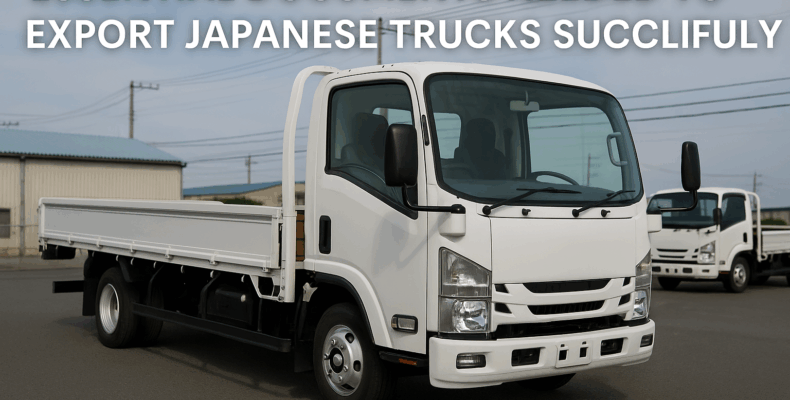📄 Truck Export & Import Tips: Required Documents for Japanese Truck Export
If you’re planning to import a high-quality used truck from Japan, understanding the required export documents is essential. Missing or incorrect paperwork may lead to shipping delays or customs issues. Thankfully, once you know what’s needed, the process becomes much easier.
In this guide, you will find a complete breakdown of each document required for a smooth export experience.
For trusted exporters, check:
👉 Top 5 Trusted Japanese Used Truck Exporters for Global Buyers
🌏 Why Exporting from Japan Is a Smart Choice
Japan is globally known for producing reliable, fuel-efficient trucks. Models such as the Isuzu Elf, Hino Ranger, and Fuso Canter are especially popular in Africa, Southeast Asia, and South America.
These vehicles offer:
-
Long lifespan
-
Affordable maintenance
-
Easy access to parts
However, to legally export and import these trucks, you’ll need the proper documents.
📦 Key Documents for Exporting Japanese Trucks
Below is a clear explanation of the main documents needed when exporting a truck from Japan:
1. Export Certificate (Deregistration Certificate)
This official document confirms the truck is no longer registered in Japan. It is required for customs clearance and overseas registration.
2. Bill of Lading (B/L)
Issued by the shipping company after loading the truck. It lists:
-
Shipping route
-
Consignee details
-
Truck specifications
Always check that the details are correct.
3. Commercial Invoice
This is the proof of sale. It shows:
-
Vehicle price
-
Buyer and seller info
-
Payment terms
It helps calculate import taxes and duties.
4. Packing List (Optional)
Although not mandatory in all cases, a packing list with truck specs and condition can speed up customs procedures in some countries.
5. Inspection Certificate
Some countries require a pre-export inspection. For example, Kenya, Tanzania, Uganda, and Zambia all need this certificate.
6. Export Permit from Japanese Customs
Before leaving the port, your truck must receive clearance from Japanese customs. This step is typically managed by the exporter.
7. Insurance Certificate (for CIF shipments)
If your purchase includes shipping insurance, you’ll receive a certificate that proves coverage in case of loss or damage during transit.
✅ Final Tips for a Hassle-Free Export
-
Confirm all documents are ready before the truck ships
-
Review your destination country’s import laws
-
Ask your exporter to send scanned copies in advance
-
Keep printed copies for customs and registration
-
Save all documents until the truck is registered locally
🌟 Conclusion
Having the right documents is the key to a fast, legal, and smooth export process. Once you understand the paperwork, importing your truck becomes straightforward. For a successful purchase, always start with the right knowledge—and work with experts.
Want to find trusted Japanese exporters?
👉 See the Top 5 Recommended Exporters
